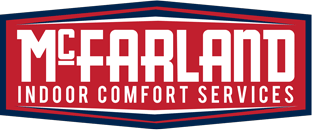What HVAC Dampers Are and What They Do
Being able to streamline the heating and cooling system in your home to meet the unique needs of each resident might seem out of reach. For decades, central HVAC systems were only capable of creating uniform temperatures all throughout the buildings they serviced. However, just as ductless mini-split systems make it possible to customize temperature settings in individual rooms, HVAC zoning services allow homeowners with central HVAC to enjoy this level of convenience, too. HVAC dampers are an important part of HVAC zoning. What HVAC Dampers Are Dampers are crucial components of zoned HVAC systems. Often referred to as duct dampers, these components block the flow of air when closed. Unlike closing off air vents in spaces that aren’t being used, dampers don’t place any excessive stress on your ductwork or on any other part of your heating and cooling system. If you turn the thermostat down in a room that you aren’t using, dampers will ensure that heated air bypasses this zone and goes where it’s needed instead. How Dampers Work Dampers act like valves in zoned heating and cooling systems. They determine which zones require conditioned air in order to achieve the desired temperature. HVAC dampers section ductwork...
View Article